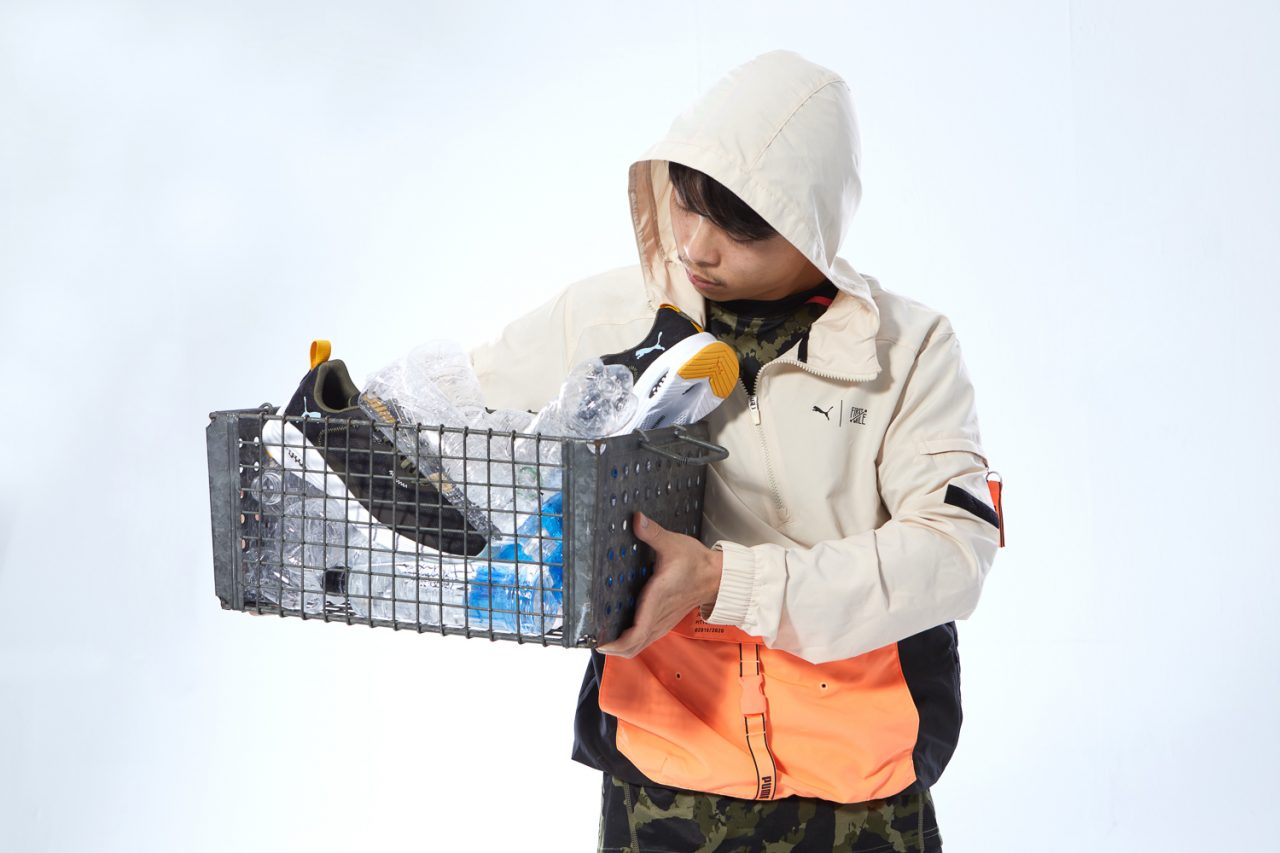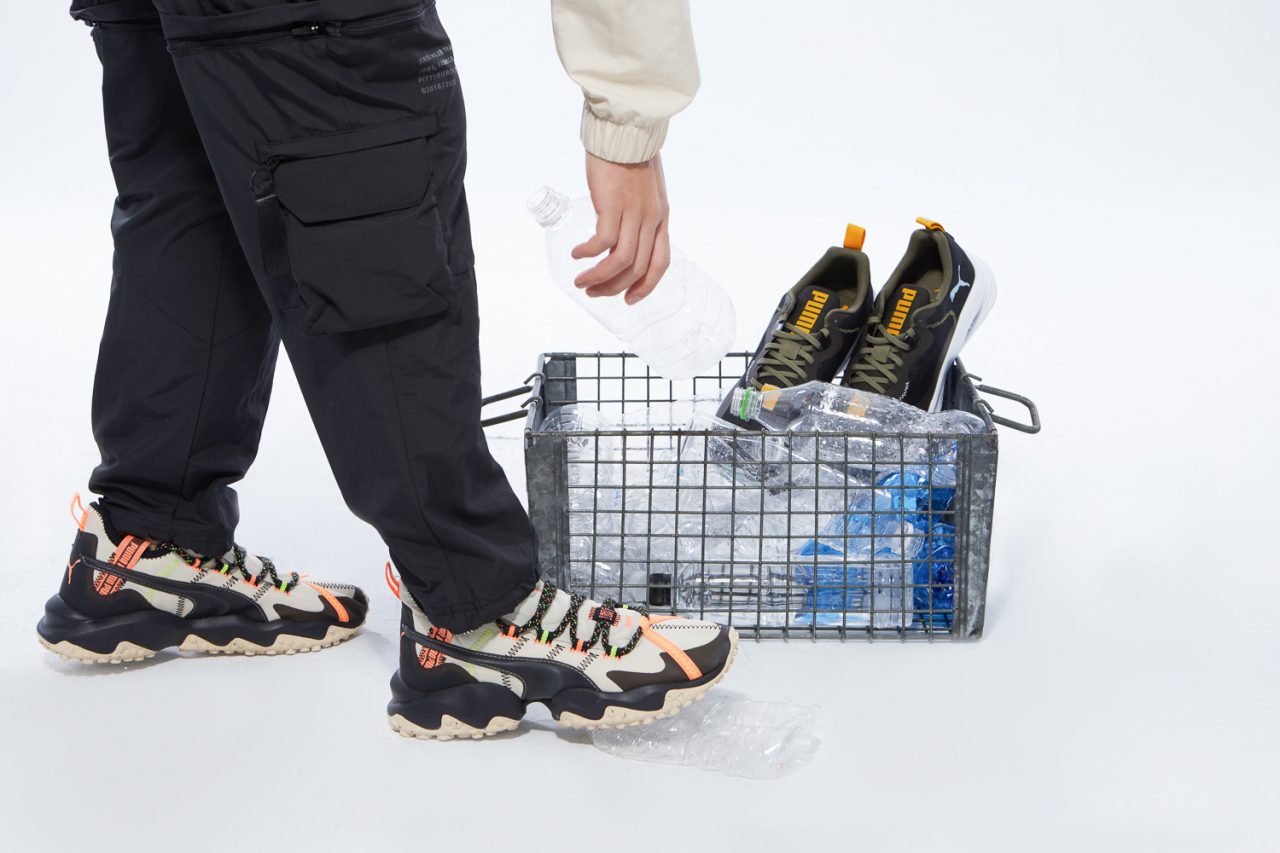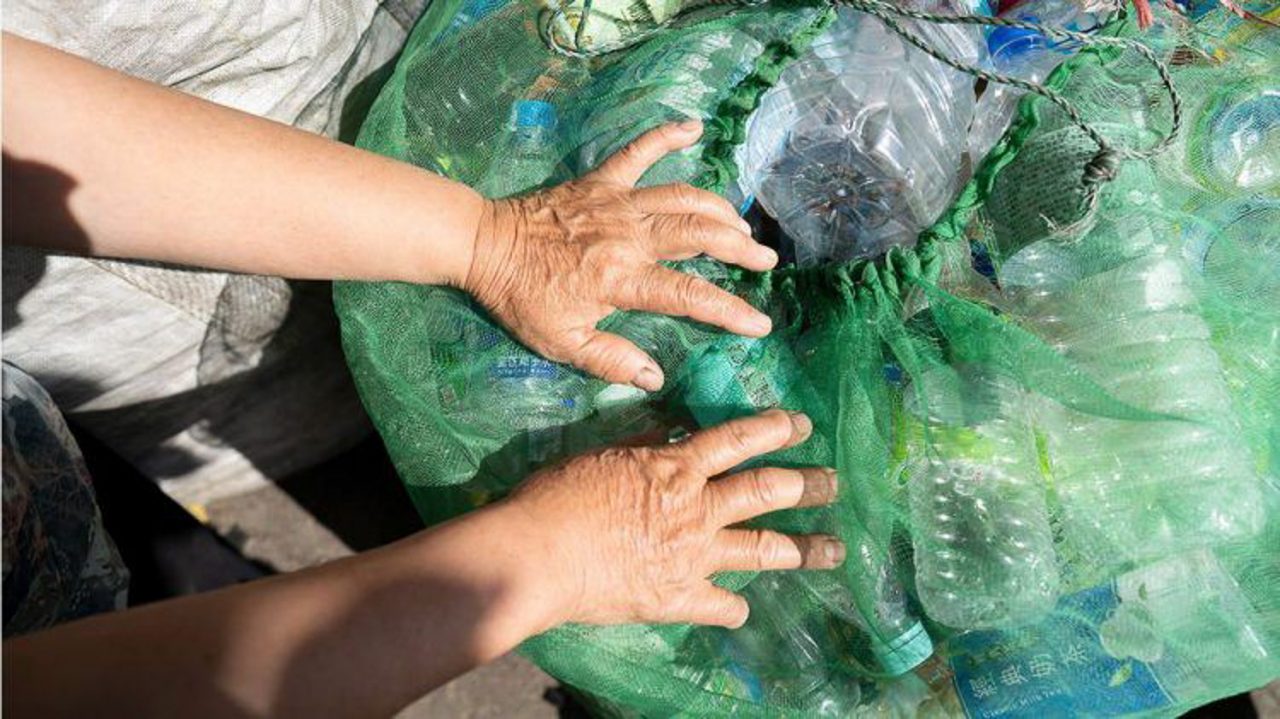運動環保焦點 Q&A PUMA 與 First Mile 將寶特瓶變成了新運動時尚
環保,一直是運動產業近年來的重要宗旨,畢竟要好好的運動,也要同時有好的環境相輔。而這些大量商品的製作,最重要的就是材料來源的問題,從最基本的單位,開始使用回收素材,是重要的一個研發突破。目前最成熟的再製技術,就是從寶特瓶回收加工開始。台灣寶特瓶回收率高達 95 %,是全球前幾名的高點,城市到處都有著默默回收著這些被遺棄的資源,被有效率的回收到工廠進行再生。
而有沒有想過這些寶特瓶回收之後會到哪裡呢?英國公司 First Mile 來到了花蓮,與回收業者合作,將這些寶特瓶切碎並擠壓成顆粒、二次塑型,繁複過程後製成了纖維織成布料,再與 PUMA 合作,將這些布料轉化再生成為服飾與鞋款,成為了流行前線的指標。這其中經過了許多人的心血努力,也代表了會環境盡一份心力。
先前我們先介紹了 PUMA 與 First Mile 合作的一系列鞋款特輯《 關於環保 TAIWAN CAN HELP / PUMA x First Mile 用台灣回收寶特瓶做鞋子 》, 而這回兩方合作的幕後推手, PUMA 的 Stefan Seidel 與 First Mile 的 Kelsey Halling ,雖然因為疫情關係無法面對面訪問兩人,不過卻還是有機會與兩人 Mail 訪問,聊聊這回合作背後的想法。
Kelsey Halling
Head of Partnerships, First Mile
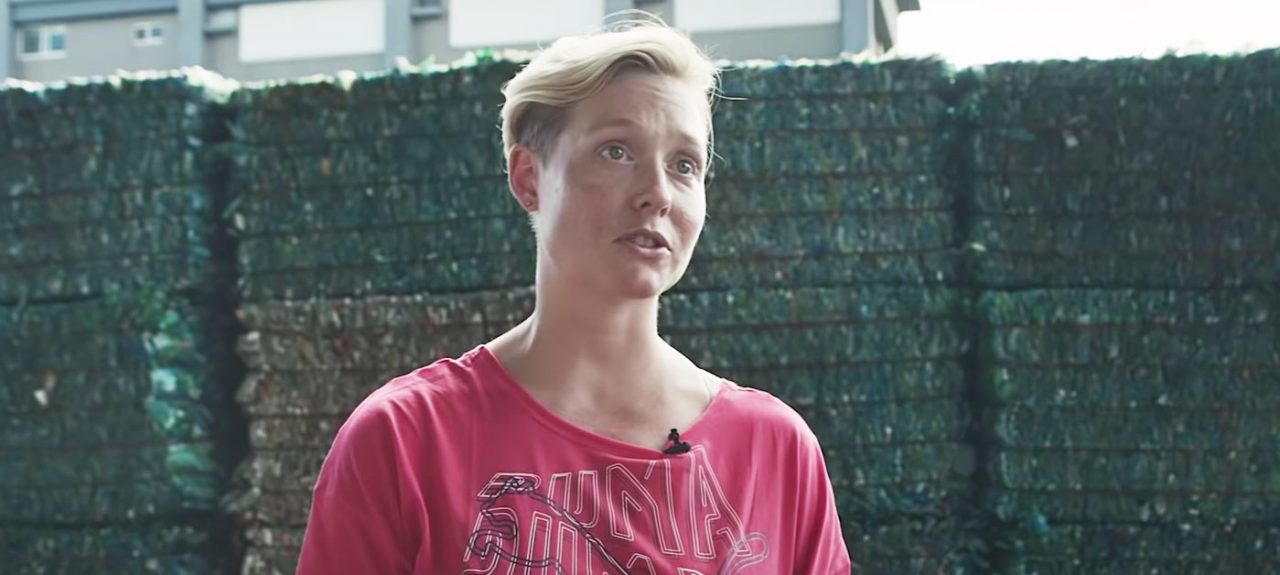
當初First Mile 成立的初衷是?剛開始遇上最大的困難是哪個部分?
What's the original intention of First Mile ? What's the biggest challenge at first?
First Mile 成立得初衷,是為了將這些龐大的廢棄物轉變成可以利用的資源,同時也創造了許多工作機會。而創立初期最大的挑戰,就是要建立這些回收供應鏈的合作夥伴,從回收廢棄物、處理變成紗線,製作成織品,這些一環一環的步驟,需要許多理念相符的夥伴來共同達成。
First Mile was founded to turn waste into a resource that creates jobs and useful stuff people love. The biggest challenge at first was finding all of the partners in the supply chain necessary to turn discarded plastic bottles into yarn, then fabric, as well as brands that wanted this material.
怎樣會找到台灣的回收工廠? 與海地、宏都拉斯相比,台灣的回收工廠有怎樣的特色嗎?
How can you find the recycling factory in Taiwan? Compared with Haiti and Honduras, what are the characteristics of Taiwan's recycling factory ?
台灣的回收工廠在全球來說,其實非常先進。在這裡我們學到了不少知識,同時還能夠幫助我們改善海地、宏都拉斯工廠的營運。而產出的原料品質真的很好,也能夠進一步的再製生產紗線。而回收文化在台灣已經是非常普遍落實,大眾都知道回收的重要性與如何正確地回收,這有助於回收再製的工程進行順利。現在我們在海地與宏都拉斯持續的再教育如何回收,在台灣工作讓我們更了解該如何在其他國家持續發展。
Taiwan's recycling is really advanced, and we learn so much working here that will help us improve our operations in Haiti and Honduras. The quality is really high, so we can produce all kinds of yarn and products in Taiwan. There is also a really strong culture of recycling in Taiwan – everyone knows the importance of recycling, and how to do it properly. We still do a lot of education in Haiti and Honduras but working in Taiwan lets us see how the industry can grow and develop in those countries.
現在很多品牌都與 First Mile有多面向的合作,在原料上頭,除了寶特瓶,還有哪些原來可以回收再製?
Now, many brands have cooperated with First Mile. In the materials, besides bottles, what else can be recycled and made into new materials?
目前,我們專注在寶特瓶 (PET 材質)的回收,可以將這些回收材料再製成為鞋款、服裝,甚至電腦、印表機墨盒等等,再生塑料是有說不完的用途的!而下個要關注的目標是服裝產業,現在有著大量的服裝被丟棄,而這些服裝的回收是個的大問題,要如何有效地將這些回收再製成新的纖維與紡織品,而且如何確保這種材料繼續使用並且不會被丟棄,是個目標。
Right now – we focus on PET bottles, but those can be turned into everything from shoes and clothing to computers and printer cartridges. There is lots of use for recycled plastic! The next thing to focus on in the apparel industry is how to recycle clothing back into new fiber and textiles once people are done with the clothes. How can we make sure this material stays in use and doesn't get discarded?
對於回收再製纖維的強度與韌性,能應用在專業運動有怎樣的挑戰?
What are the challenges for the strength and toughness of recycled fiber in professional sports?
回收再生材料的品質實際上並不比原生素材低。在我們 First Mile監製下產出的回收再製素材,必須通過PUMA定期進行的所有強度和質量測試,以確保產品能夠達到PUMA運動測試的高標準。我們非常自豪 PUMA x First Mile 合作的這個系列,能夠有著時尚外型與強大的運動機能,並為人類和地球帶來好的影響力。
Recycled material is not lower quality than virgin material – though that is a persistent myth. First Mile material had to pass all of the strength and quality tests that PUMA regularly puts in place to ensure that the products will perform to the high standards that PUMA's athletes are used to. We're really proud that this collection is fashionable and functional and also provides positive impact for people and the planet.
我們知道 PUMA 是個充滿創意的運動品牌,在與他們合作上,會有怎樣與其他合作有趣或是特別的地方嗎?
We know that PUMA is a creative brand. In cooperation with them, what will it be interesting or special to cooperate with other?
這次PUMA 的廣告,將主題特寫在 First Mile 回收寶特瓶的人們,講述著這些人的故事。很多時候,即使他們為社會提供了重要的回收服務,但是從事回收工作的人們卻沒有受到尊重與重視。因為他們所做的這些工作,再由回收材料製成產品,我希望這樣的合作能使人們對於塑料「丟棄浪費」和「再回收使用」,兩者之間的差異,而更重視這件事。
PUMA's commitment to telling the story of the men and women working in plastic collection in The First Mile has been really wonderful. So often, the people working in waste management go unnoticed, even though they provide an important service to society and to their communities! By celebrating the work they do and making beautiful products from recycled material – I hope this collaboration makes people view plastic waste and recycling differently.
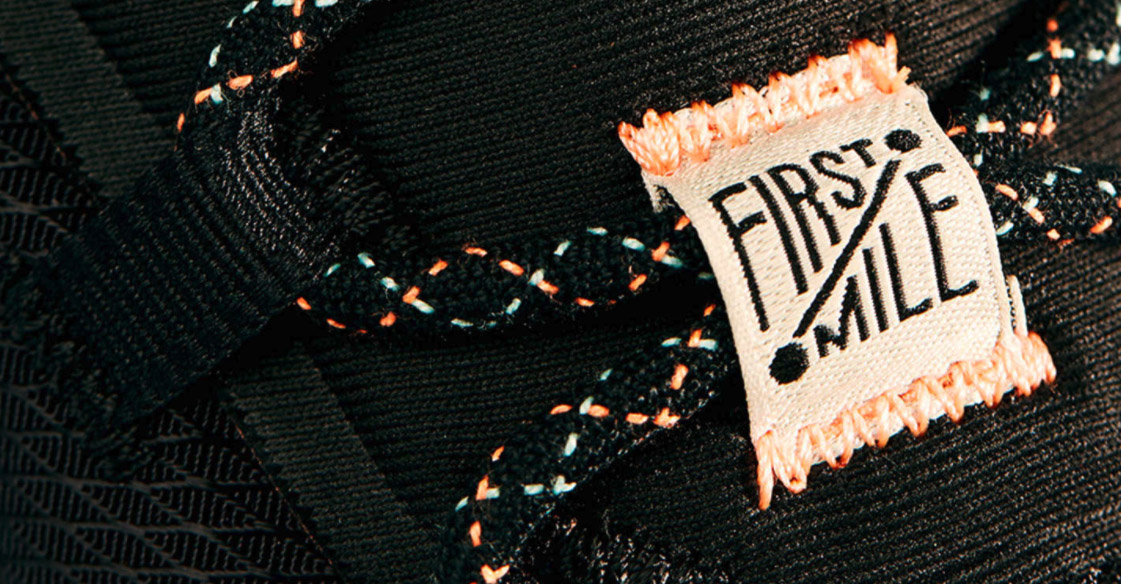
Stefan Seidel
Head of Sustainability, PUMA
作為世界知名的運動品牌,PUMA 一直是充滿活力與創意。而在 『Sustainability 永續性』上,是有怎樣的理念嗎?
As a world-famous sports brand, PUMA has always been full of vitality and creativity. What is the concept of “Sustainability” in PUMA ?
我們為自己設定了10個永續性目標,最主要的是其中更多永續性材料使用在未來的產品之中,讓在產品大規模使用這類材料。像我們使用了超過90%經過認證的聚酯纖維和 80% 以上來自“ Better Cotton Initiative ”計畫中所生產的棉花原料來自做我們的產品,都是根據這目標前進。直到 2025年,品牌的目標將以近幾年的成功為基礎,然後更關注在永續發展的產品、塑料回收和我們的海洋環保議題上。
We have set ourselves 10 sustainability goals, which include a target on the use of more sustainable materials. This helps us to use such materials at scale in the vast majority of our products. For example, we have used over 90% certified polyester and over 80% cotton from the Better Cotton Initiative. We have also set a Science Based Climate Action Target.Our new strategy for 2025 will build on the successes of the past years and includes a renewed focus on more sustainable products, circularity as well as plastics and the oceans.
這次與First Mile單位合作,將回收物成為產品原料,賦予新的生命。這一方面, PUMA 在產品設計上有怎樣的改變嗎?在鞋款方面,未來是否有計劃中底也使用回收材當原料?
This time, in cooperation with the First Mile , the recycled materials will be used as new materials . Has PUMA changed any product design ? For the shoes, are there any plans to use recycled materials as raw materials in the midsole in the future ?
在這次與 PUMA x First Mile 一系列商品中,我們有為了 First Mile融入了許多特別的設計意念,讓整體更具完整度。鞋款當然這也是我們使用回收素材的目標之一,我們現在還在考慮更多的方式,讓鞋款使用更高比例的回收素材,當然中底也是包括在內。
We are using a special design language for our First Mile Collection and call out First Mile on the products. As part of our new Circularity Target, we are looking at using more recycled materials for many applications, including in midsoles for shoes.
與 First Mile 合作的產品融合了原本品牌的活力與環保的精神,對你來說,還有哪些是可以影響眾人的部分?
The products cooperated with First Mile combine the vitality of the original brand and the spirit of environmental protection. For you, what else can affect everyone?
First Mile 這個計畫最主要的還是對於社會方面的影響。從這些資源回收的收集者,透過這些人的故事來讓大家更了解回收資源背後的故事。 First Mile做的不只是回收素材本身,而更是涵蓋了社會議題與環境永續的多方面項。
I would also like to call out the social dimension of First Mile. Collectors are earning a living from diverting plastic bottles from landfills, so the First Mile concept covers both the social and the environmental dimension of sustainability.
運動產業界越來越重視環保再生,你如何看待近年這一波浪潮?你認為下一個 10 年環保這件事在運動產業界會有怎樣的影響?
The sports industry is paying more and more attention to environmental protection. How do you view this wave in recent years? How do you think environmental protection will affect the sports industry in the next 10 years?
我們需要一個乾淨的環境來運動,沒有人願意再被污染的空氣中跑步、踢球,或是在污染的水中游泳。因為這樣,運動產業更是要重視著環保問題是合情合理。我們已經投入許多時間與資源在 “ 永續性 “上,這雖然這不是什麼新聞,但是我們看到有越來越多的人,更關注我們在這件事的努力。
未來10年,世界最大的環保挑戰,是將全球暖化限制在 1.5 °C 以內,並且將現在廢棄物處理的線性模式,轉變為回收循環模式。這些不只是運動品牌,更是所有各行各業必須面臨的全球挑戰。隨著《時裝產業氣候行動憲章》的發布,更多運動、時尚品牌的加入,發揮更多的作用,就可以看到越來越多對於環保的認真與努力。
To do sport, you need a clean environment. Nobody wants to run or play football breathing in a polluted air, or swim in polluted waters. Therefore, it is a logical consequence for sports brands to engage in environmental protection efforts. This is not new, as we have been active on sustainability for quite some time, but what we see is an increasing interest in our efforts.
The biggest environmental challenge over the next 10 years will be to limit global warming to 1.5 degrees and to move from linear business models of take-make-waste to circular business models. These are global challenges for all industries – and the sporting goods and fashion industry will play an important role, as we have for example shown with the launch of the Fashion Charter on Climate Action.


